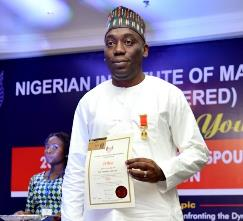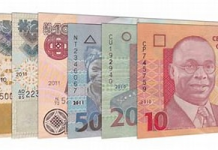No fewer than N102 million Nigerians now live in extreme poverty, a latest report by the Nigeria Employers Consultative Association (NECA) has said.
The World Bank had in 2019 defined extreme poverty as living on less than $1.90 a day, even as it added that it was likely to affect between 9.1% and 9.4% of the world’s population in 2020.
NECA said the figure represents 50% of estimated Nigeria’s population of about 205 million and a 10% point rise against the 40% number of Nigerians living in extreme poverty reported by the National Bureau of Statistics (NBS) in October 2019.
The World Bank had in June 2020 predicted that there would be 95.7 million Nigerians living below the poverty line by 2022 due to the impact of the COVID-19 pandemic.
According to the latest annual report by NECA, the total number of people living in extreme poverty in Nigeria now stands at 15% of the total number of people living in extreme poverty world-wide.
The Acting President of NECA, Taiwo Adeniyi said “with COVID-19, the figure could only be imagined. It is practically impossible to separate unemployment from poverty. The longer people stay out of employment or any reasonable means of income, the higher the rate of poverty. Two years after it was reported that Nigeria had surpassed India as the nation with the highest number of people living in extreme poverty across the world, the country’s poverty ranking continues to surge.”
Continuing, he said: “the World Poverty Clock, a web tool based on World Data Lab’s global poverty model, estimated in June 2018 that 86.9 million Nigerians are living on less than $1.90 a day. That number has increased by over 15 million in the past two years, according to new figures published by the World Data Lab on May 26, 2020.”
The NBS in its report on poverty and inequality from September 2018 to October 2019, had said 40% or 82.9 million Nigerians live below poverty line of N137,430 ($381.75) a year.
It added that “In Nigeria, 40.1% of the total population was classified as poor. In other words, on average, four out of 10 individuals in Nigeria have real per capita expenditures below N137,430 ($352) per year.”
The NBS said it did not include Borno, the state worst hit by the decade-long Boko Haram armed uprising, because many areas there were not safe to reach.
It noted that no fewer than 52% of people in rural areas live in poverty, compared with 18% in urban parts of the country.“The highest poverty levels were in the northwest state of Sokoto where 87.7% of people live under the poverty line compared with 4.5% in commercial hub Lagos state, which had the lowest rate”, the report added.











